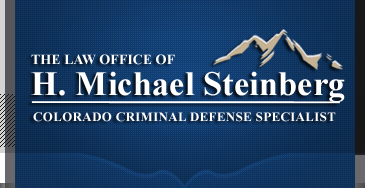






Colorado Criminal Law – The Rules of Discovery in Colorado – Getting The Information You Need To Defend Your Clients
Introduction – Discovery in the Colorado courts is governed by Colorado Rule of Criminal Procedure Rule 16. This web page explores the rule – as it is complex – and breaks it down into the rule’s components.
Crim. P. Rule 16.
Crim. P. Rule 16(I)(a)(1), (2). – The Prosecution’s Duties of Disclosure
As noted , in Colorado, the prosecutor’s general duties of disclosure are dictated by rule 16.
Mandatory disclosures
Police, arrest and crime or offense reports, including statements of all witnesses;
With consent of the judge supervising the grand jury, all transcripts of grand jury testimony and all tangible evidence presented to the grand jury in connection with the case;
Any reports or statements of experts made in connection with the particular case, including results of physical or mental examinations and of scientific tests, experiments, or comparisons;
Any books, papers, documents, photographs or tangible objects held as evidence in connection with the case;
Any record of prior criminal convictions of the accused, any codefendant or any person the prosecuting attorney intends to call as a witness in the case;
All tapes and transcripts of any electronic surveillance (including wiretaps) of conversations involving the accused, any codefendant or witness in the case;
A written list of the names and addresses of the witnesses then known to the district attorney whom he or she intends to call at trial;
Any written or recorded statements of the accused or of a codefendant, and the substance of any oral statements made to the police or prosecution by the accused or by a codefendant, if the trial is to be a joint one.
The Timing of These Disclosures – Generally, no later than 30 days prior to trial.
Statement of defendant/co-defendant as soon as practicable but no later than 20 days after filing of charges.
Prosecution is required to ensure the flow of information maintained between themselves and various investigative personnel within their possession and control that is material and information relevant to the accused and the offense charged.
These mandatory disclosures to the accused are required even “in absence of a request by the defense.”
Every statement of the accused must be disclosed.
Witness statements in investigator’s notes/report are discoverable, even if the statements are of defense witnesses.
Discretionary Disclosures
In addition to the mandatory requirements above of rule 16, Colorado courts have the discretion to order disclosure of “relevant material or information [not covered under mandatory disclosures] upon a showing by the defense that the request is reasonable”
Ultimately, the determination of what is relevant rests with the trial court.
The court may deny discretionary disclosures if the court finds that resulting from such disclosure there will be:
A substantial risk to any persons;
Physical harm, intimidation, bribery, economic reprisals; or
Unnecessary annoyance or embarrassment;
That outweighs any usefulness to the defense.
The Disclosure of Experts
Mandatory Disclosure:
Any reports or statements of experts made in connection with the particular case, including results of physical or mental examination and of scientific tests, experiments, or comparisons.
Discretionary Disclosure:
The intent is to allow defense sufficient meaningful information to conduct effective cross examination under Colo. R. Evid. 705.
Upon request, the Court is allowed to order the underlying data or facts of an endorsed expert witness. If a report has not been prepared, the Court may order a summary be provided of the witness’ opinion and basis and reasons.
Not Discoverable: Attorney Work Product:
Generally, prosecutor’s notes and worksheets are not automatically discoverable
Defense Disclosures
All defense disclosures are subject to constitutional limitations.
Mandatory Disclosures by the defense must be made at least 30 days prior to the trial include:
Nature of the defenses they intend to use at trial;
Notice of alibi, if applicable, that specifies where the defendant was and the names and addresses of all alibi witnesses;
and
Names and addresses of witnesses defense intends on calling at trial
Experts:
The intent is to allow the prosecution sufficient meaningful information to conduct effective cross examination under Colo. R. Evid. 705.
The Court may require disclosure to the prosecution a copy of an expert’s report in the case, including results of physical or mental examinations and of scientific tests, experiments, or comparisons.
Upon request, the Court is allowed to order the underlying data or facts of an endorsed expert witness
Impeding Discovery and Continuing Duty to Disclose Crim. P. Rule 16(III)(a). Crim. P. Rule 16(III)(b).
Investigation should not be impeded by either side.
Each party has continuing duty to disclose if they obtain additional material or information which is subject to disclosure
Protective Orders and Excision/In Camera Proceedings Crim. P. Rule 16(d). Crim. P. Rule 16(e), (f).
Protective Orders can be requested by either party for information obtained under this Rule.
Excision and In Camera Proceedings can be requested by either party.
Law on Violations/Sanctions for Discovery Violations
If at any time during the course of the proceedings it is brought to the attention of the court that a party has failed to comply with this rule or with an order issued pursuant to this rule the court may:
Order such party to permit the discovery or inspection of materials not previously disclosed;
Grant a continuance;
Prohibit the party from introducing in evidence the material not disclosed;
or
Enter such other order as it deems just under the circumstances.
The least restrictive sanction is favored by the courts. “Similarly, in serving the purpose of deterrence, we have stated that ‘the court should impose the least severe sanction that will ensure that there is full compliance with the court’s discovery orders.'”
Dismissal is considered a drastic remedy. “In fashioning a sanction to achieve the goal of eliminating the due process violation, a court must strive to restore as nearly as possible the level playing field that existed before the discovery violation. Only when that goal cannot be achieved is dismissal required as a remedy for the violation of due process.”
The Disclosures of A Victim/Witness Address C.R.S. § 16-5-203.
Furnishing of Witnesses’ Names:
Requires prosecution to furnish witnesses names not later than 20 calendar days following the filing of charges in felony cases.
This requirement continues as new witnesses are known to the prosecution.
In domestic violence cases, the disclosure of the address of the victim and/or witnesses may provide safety concerns.
This statute does, however, provide non-disclosure protection in domestic violence cases:
The court may, in its discretion, enter an order that denies the disclosure to the defendant of the names and addresses of witnesses, or that requires the defense counsel not to disclose such information to the defendant, subject to rule 16 part I(d)(2) and part III(d) of the Colorado rules of criminal procedure.
The names and addresses of witnesses who are the subject of the order may be withheld pending a ruling of the court,
The prosecution shall notify the defense counsel in writing that a motion to withhold witness information has been filed and that such information will be withheld pending the court’s order.
The general rule requiring disclosure of the address of a witness is subject to an exception that precludes those inquiries which tend to endanger the personal safety of the witness.
The People may make a request for non disclosure to protect the personal safety of the victims. For this exception to apply:
The prosecution must show the danger claimed by the victim in some way relates to the defendant; and
There must be a nexus such that the witness legitimately fears reprisal from the defendant.
Witness Protection:
Witness protection board–creation–Javad Marshall-Fields and Vivian Wolfe witness protection program–witness protection fund.
A state witness protection board was created in 2008 in the Colorado Department of Public Safety to provide funds for security and protection of witnesses during an investigation or official proceeding.
Any materials maintained by a witness protection board are confidential.
The statute does permit an in camera review to determine if any material are discoverable.
Victim Compensation Files
The records are considered confidential and are not discoverable unless and until a court conducts an in camera review and has made a determination that the materials sought are necessary for the resolution of the issue pending before the court.
Address Confidentiality Program.
This new program became effective July 1, 2008.
The program permits victims of domestic violence, stalking, and sexual assault to keep their address confidential.
The victim must register with the secretary of state, and the secretary of state receives mail on behalf of the program participant.
The victim agrees to accept service of any legal mail/subpoena through the secretary of state.
Privileges and Privileged Materials C.R.S. § 13-90-107.
This privilege addresses various relationships where the law encourages confidences. These confidences can apply to written requests for discovery in criminal matters.
However, there is no marital privilege in a criminal case when one spouse is the victim of another spouse.
Specific Privileged Relationships
Doctor/Patient
A physician, surgeon, or registered professional nurse duly authorized to practice his profession pursuant to the laws of this state or any other state shall not be examined without the consent of his patient as to any information acquired in attending the patient which was necessary to enable him to prescribe or act for the patient,
Victim Advocates: community based vs. law enforcement
A victim’s advocate shall not be examined as to any communication made to such victim’s advocate by a victim of domestic violence as defined in section 18-6- 800.3(1), C.R.S., or a victim of sexual assault, as described in sections 18-3-401 to 18-3-405.5, 18-6- 301, and 18-6-302, C.R.S, in person or through the media of written records or reports without the consent of the victim.
For purposes of this section, a victim’s advocate is a person at a battered women’s shelter or rape crisis organization or a comparable community-based advocacy program for victims of domestic violence or sexual assault and does not include an advocate employed by any law enforcement agency.
Other Articles of Interest:
- Making “Discovery”
- A Denver Colorado Criminal Lawyer Asks – Can The DA Stop The Witnesses From Talking To The Defense?
- Colorado Bail Bond Laws and Rules
- Investigation by the Defense
- What A Colorado Criminal Defense Attorney Does – Part I – Pre-Trial






















